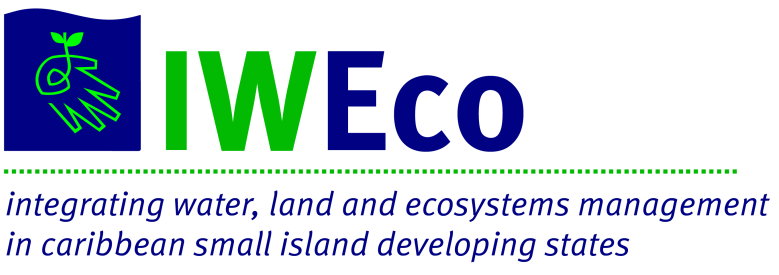Prioritising Water, Land and Ecosystems Management, and Climate Resilience in Five OECS Countries with IWEco
The destruction left behind in several Caribbean islands by Hurricanes Irma and Maria in 2017 highlighted their vulnerability and emphasised the need for a strong natural resource base to protect and make communities and ecosystems more resilient to the impacts of climate change, which are expected to become even more severe in the future.
Some of the Caribbean’s tiniest Small Island Developing States (SIDS) belong to the Organisation of Eastern Caribbean States (OECS) which held the 5th Meeting of its Council of Ministers of Environmental Sustainability (COMES 5), in Montserrat from 10 – 11 July 2018, under the theme “Building Resilience on the Frontlines of Climate Change”. The meeting, which was attended by Ministers and senior technical officers from most of the member states, was chaired by Montserrat’s Minister of Agriculture, Trade, Lands, Housing and the Environment, Hon. David Osborne.
Five OECS countries are participating in the Global Environment Facility-funded Integrating Water, Land and Ecosystems Management in Caribbean Small Island Developing States (GEF IWEco) Project.
Indeed, these countries: Antigua & Barbuda, Grenada, St. Kitts & Nevis, Saint Lucia, and; St. Vincent & the Grenadines, amount to half of the ten countries participating in this participatory five-year Project which is funded by the GEF to the tune of US $20 million.
IWEco is being co-implemented by UN Environment and the UN Development Programme and co-executed by UN Environment’s Caribbean Regional Coordinating Unit (UN Environment CAR RCU) which is the Secretariat to the Convention for the Protection and Development of the Marine Environment of the Wider Caribbean Region (the Cartagena Convention). All OECS countries are signatories to the Cartagena Convention, a comprehensive, umbrella agreement for the protection and development of the marine environment.
Fresh and coastal water resources management, sustainable land management and sustainable forest management are all challenges to Caribbean SIDS, and more-so as the region’s economies face numerous demands and, inevitably, another hurricane season. Addressing these challenges while improving social and ecological resilience to the impacts of climate change are objectives of the IWEco Project.
On 11th July, in a brief signing ceremony immediately preceding the OECS COMES 5 press conference, the Regional Coordinator of the Cartagena Convention, Dr. Lorna Inniss, invited Ministers representing the countries participating in IWEco to sign a ‘Statement of Intention’ to foster and sustain collaboration with the Project Coordination Unit, the Project Executing Agencies and Partners, including the OECS, towards successful implementation of the project in their respective countries.
Each of the Ministers spoke, highlighting the potential benefits of the Project for their countries. They expressed their joint commitment to ensuring its timely and efficient implementation.
Four of the countries (Antigua & Barbuda, St. Kitts & Nevis, Saint Lucia, and St. Vincent & the Grenadines) have national sub-projects that will develop and implement targeted, innovative, climate resilient approaches to land, water and ecosystem management. Direct funding from the GEF for these four projects amounts to approximately US $4 million.
Grenada, along with all participating countries (the others being Barbados, Cuba, the Dominican Republic, Jamaica and Trinidad & Tobago) will benefit from regional project activities aimed at strengthening policy, legislative and institutional frameworks, strengthening monitoring and evaluation, and public awareness.
Dr. Inniss afterwards noted that since the particularly destructive hurricane season of 2017, perhaps even as a consequence of it, the trend in the region towards consolidating several related areas of responsibility into single ministries seems to have grown. Grenada, for instance, now has a Ministry of Climate Resilience, the Environment, Forestry, Fisheries, Disaster Management and Information; Dominica now has a Ministry of Environment, Climate Resilience, Disaster Management and Urban Renewal.
The IWEco Project aims to put a more integrated approach into practice and looks forward to successful implementation of these innovative initiatives, so essential to greater preparedness and resilience, in its smallest participating countries.

